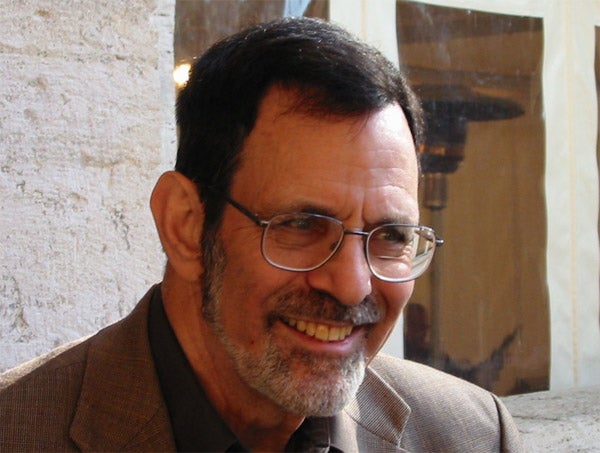Stanford Professor Emeritus Michael Wigodsky, 78, passed away from cancer in his Mountain View home on May 9. An expert in early Latin literature and later Greek philosophy, Wigodsky spent his academic career in the classics.

Michael Wigodsky is remembered for his enthusiasm for the classics and modern classical music. (Image credit: Jeffrey Fish / Baylor University)
Wigodsky was born in Houston, an only child, on May 23, 1935. After receiving his bachelor’s degree with the highest honors at the University of Texas in 1957, he won a Princeton National Fellowship for graduate work and in 1958 an Owen D. Young Fellowship. A Fulbright Grant enabled him to take a Fellowship at the American Academy in Rome and he received the Prix de Rome Fellowship for 1960-61.
Wigodsky spent a year as an instructor at Florida State University before he came to Stanford in 1962. He stayed at Stanford for more than 30 years until his retirement as full professor in 1998.
“He was a very pleasant man, easy to get along with – very keen on talking about either his classics knowledge or about modern classical music,” said Stanford Professor Emeritus Mark Edwards.
From the beginning, early Latin poetry was Wigodsky’s main scholarly interest, and he expanded his 1964 doctoral thesis into a book titled Vergil and Early Latin Poetry, published in 1972. In a review, one classics contemporary wrote, “This is an eminently learned philological monograph of the kind one sees rarely published by a young American scholar.”
Later, Wigodsky went behind the poetry to study the intellectual climate that influenced Vergil, Horace and Lucretius. This led him to explore two battling schools of thought from the time of the poets – Stoicism and Epicureanism.
In the mid-1980s, Wigodsky’s expertise took him to the Philodemus Project, an international effort based at the University of California, Los Angeles, dedicated to deciphering ancient scrolls from the Epicurean philosopher Philodemus. His research shed new light on the early Latin poets and led him to publish several articles on Philodemus, Horace and Epicurus.
“It is sad that his work in this field cannot continue,” Edwards wrote in an obituary of Wigodsky for the Stanford Classics Department.
Wigodsky will also be missed by the West Coast Aristotelian Society, a group of scholars who regularly met to discuss the works of Aristotle. Established in 1975 and comprised of classics and philosophy professors and graduate students, the Society gets together once a month at either Stanford or Berkeley. Wigodsky had taken over the planning and organization for the meetings a few years ago from the late Stanford philosophy Professor Julius Moravcsik.
Outside of Stanford and classics, Wigodsky enjoyed modern classical music from grand operas to musicals. He amassed a huge collection of records and DVDs and regularly went to San Francisco and Los Angeles for concerts, which he would then enjoy discussing with other music lovers.
“During his years teaching at Stanford, Mike had many friends in other departments, who valued him for the remarkable depth of his knowledge and interests,” Edwards wrote.
There will be no memorial service.
Shara Tonn is an intern at Stanford News Service.